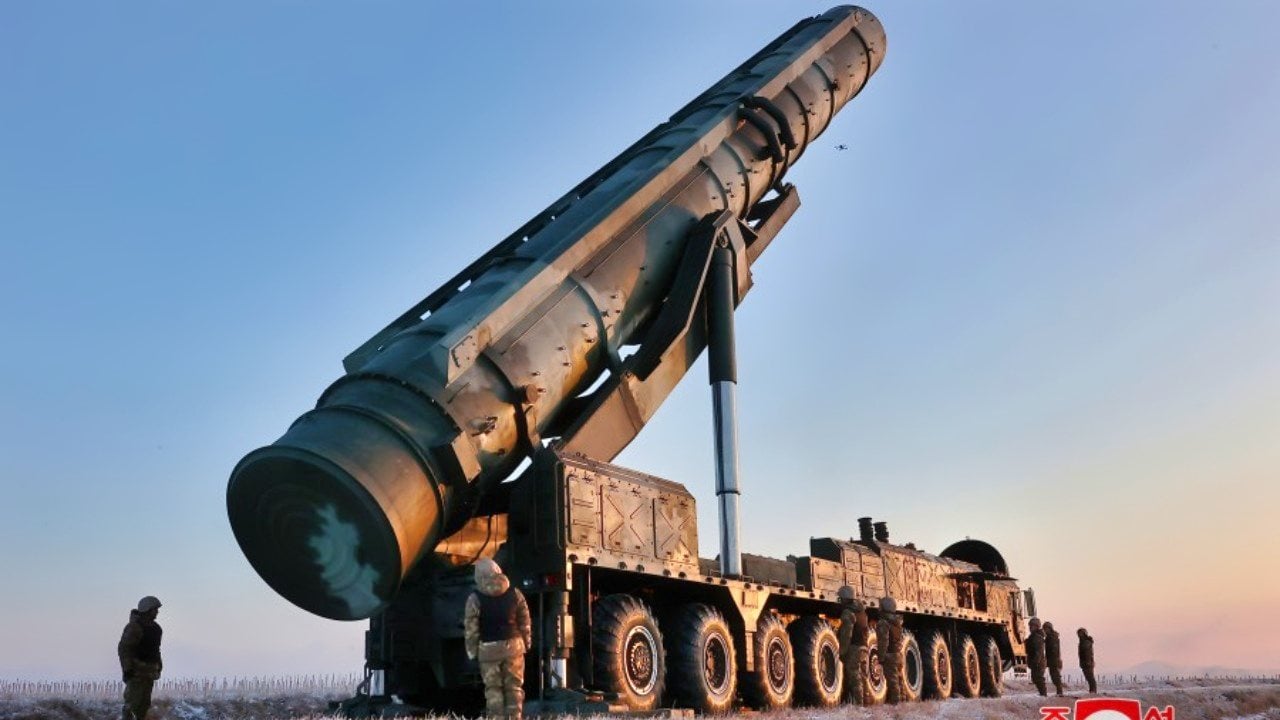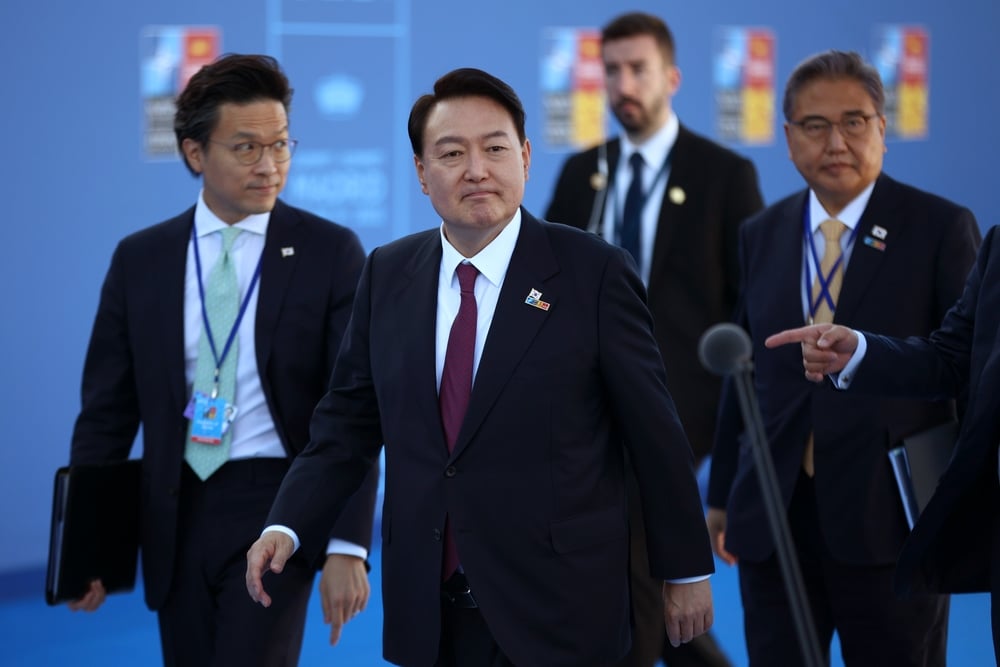A New Korean War Is Not Imminent. Accidental Escalation Might Be.
The United States should try to mitigate Seoul’s offensive impulses, calm Pyongyang, and take steps to bring back dialogue and negotiation.
Likewise, in the absence of guardrails such as the CMA and channels of communications such as political and military hotlines and contacts, accidental clashes can easily climb up the ladder of escalation, even though limited or all-out attacks by both sides are far less likely to occur. Changing the rules of engagement, which mandates immediate and massive retaliation and punishment by both Koreas, can also fuel the crisis escalation. The adoption of preemptive strikes and integration of conventional and nuclear deterrence further heighten the chance for nuclear conflict. Finally, in theory, the United States can mitigate the escalation of accidental clashes through the United Nations Command that oversees the Armistice Agreement and the ROK-U.S. Combined Command that exercises wartime operational control over the South Korean forces. However, the acuteness of the crisis and Seoul’s commitment to immediate retaliation and punishment could limit the effectiveness of American intervention.
Avoiding Crisis Escalation on the Korean Peninsula
The sequence of accidental clashes, crisis escalation, and war might appear rational at each incremental step until the conflict spirals entirely out of control. This dilemma constitutes the essence of the security risk in Korea in 2024. Such a sequence must be avoided at any cost. What measures are needed?

First, both Koreas should refrain from proactive deterrence of escalation and should restore confidence-building measures (CBMs). They would show mutually restraining behavior while putting brakes on the exchange of hostile rhetoric and offensive military postures and moves. The nullified CMA must be reinstated, communication channels must be reopened, and Seoul and Pyongyang should work hard to revive backchannel diplomacy. Now is not the time to discard hard-won CBMs and burn the bridges of contact and communication.
Second, to build the CBMs, both Koreas should avoid mutual demonization. Demonization denies strategic empathy and blocks engagement, without which a breakthrough cannot be reached. Both sides should be willing to engage with the other they now see as evil to avoid war. Wishful thinking about a unilateral surrender or collapse of the other side—a view often rooted in ignorance, misjudgment, false conjectures, and hubris—is the surest path to an unforgivable catastrophe.
Third, avoidance of crisis escalation is feasible only when conflicting parties seek practical solutions. Neither insisting on denuclearization as an uncompromising precondition nor justifying nuclear armament while seeking sanctions relief and diplomatic normalization provides a viable starting point. The two sides should find more realistic solutions to link denuclearization with sanction relief, diplomatic normalization, and a peaceful regime. It should be remembered that negotiated peace is always the product of compromise and never the result of one prevailing over the other.
Finally, preventive diplomacy by great powers is essential for avoiding crisis escalation and war in Korea. The United States should try to mitigate Seoul’s offensive impulses, calm Pyongyang, and take steps to bring back dialogue and negotiation. Strategic patience or status quo management alone cannot prevent the outbreak of war. Similarly, China should not remain an indifferent bystander.

Beijing should make more active diplomatic efforts to stabilize the security situation in Korea. Otherwise, it can be accused of favoring the Korean conflict in order to divert American attention away from Taiwan and the South China Sea. Most importantly, the two great powers must share a common interest in maintaining peace in Korea by reactivating U.S.-Chinese cooperation to engage the DPRK while persuading the ROK. Russia, Japan, the European Union (EU), and other middle powers with stakes in Korea should also join collective efforts to avert the crisis and restore peace to the peninsula.
About the Author
Chung-in Moon is the James Laney Distinguished Professor at Yonsei University and Vice Chair of the Asia-Pacific Leadership Network for Nuclear Nonproliferation and Disarmament (APLN). He served as Special Advisor to President Moon Jae-in for national security and foreign affairs (2017-2021). The author thanks Frank Aum, Peter Hayes, David Plott, and Leon Sigal for their valuable comments.
All Images are from Shutterstock or Creative Commons.


